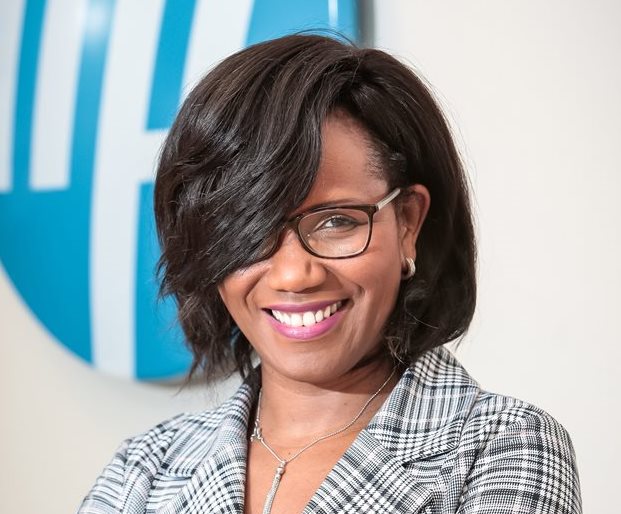Elisabeth Moreno, vice president and managing director of HP Africa, reveals what HP is doing to help entrepreneurial women succeed. She touches on the HP Life Centre, the Young Leaders Programme, and the importance of 4IR in relation to entrepreneurship.

Source: Supplied | HP Africa's vice president and managing director, Elisabeth Moreno
Moreno has a vision of using technology to assist in entrepreneurship and women empowerment in Africa. I spoke with her to get a better understanding of the vision and to uncover what HP is doing help the vision to become a reality.
How does technology play a part in helping young Africans become entrepreneurs and other important development areas?
4IR is a developing environment in which disruptive technologies and trends such as the Internet of Things (IoT), robotics and artificial intelligence are changing the way we live, study and work. The rise of digital adoption represents tremendous potential for inclusive growth across Africa.
The continent’s burgeoning youth population, which is expected to grow by more than 50% by 2050, presents a significant opportunity to create a demographic dividend, unlocking further investment in digital infrastructure and creating a more robust and inclusive workforce.
As new tools and technologies are developed, financial services can be provided with greater speed, accountability and efficiency. These tools are helping segments of society and industries that are traditionally underserved in Africa: the micro-retail sector, the agriculture sector, the education sector, and female entrepreneurs.
How is HP empowering women entrepreneurs in building large and successful businesses?
Last year, we partnered with UN Women executive director, Phumzile Mlambo-Ngcuka and we signed a Memorandum of Understanding (MOU) to expand digital learning opportunities for women and girls in five priority countries: South Africa, Senegal, Nigeria, the Democratic Republic of the Congo, and Morocco.
This collaboration between UN Women and HP builds a model of partnership where equipment and entrepreneurial online learning courses are offered in digital classrooms to more than 5,000 women under UN Women’s Second Chance Education Initiative with financial support from BHP Foundation. It will also leverage UN Women’s African Girls Can Code initiative, a joint programme of the African Union Commission, UN Women and the International Telecommunication Union.
How do you think HP and other big companies can help young people to transform their education into businesses?
HP has already started to provide young entrepreneurs training, mentoring and access to facilities through the HP Life Centre, a programme of the HP Foundation.
In collaboration with institutions such as the Ekurhuleni West TVET College in Katlehong and its Centre of Entrepreneurship Rapid Incubator, HP opened the HP Life Centre in South Africa on 30 November 2018, a technology-enabled hub to facilitate learning, collaboration and entrepreneurship in a physical, face-to-face setting.
Built on the belief that entrepreneurs are the backbone of the global economy, HP Life offers 30 free, online courses focused on business and IT skills – from business planning and marketing to raising capital and design thinking.
To date, HP Life has reached 744,000 learners in 200 countries and territories. All users need is a computer and internet connection to access HP Life, and the new, physical centre in South Africa will create a more formal educational environment. HP Life has an enrollment goal of one million users between 2016 and 2025.
Does HP have any accelerator programmes that empower women?
Elevating the voices of women and girls is a way HP approaches its gender equity advocacy. In 2018, HP and Women Deliver launched “Stories of Advocacy,” a unique partnership to support its global Young Leaders Programme.
This programme empowers youth advocates to catalyse gender equality action for girls and women in their communities. HP provides ongoing support, as well as the technology, that drives the young leaders’ advocacy platforms forward.
HP also partnered with Black Girls Code in 2019 on an Enrichment Workshop series that utilises storytelling, creativity and technology to inspire coding in five and six-year-olds. HP provides students with Rox’s Secret Code storybooks, which will serve as the basis for building and coding their own 3D augmented reality, custom robot. Once the workshop is over, the students will be able to continue the coding adventure via picture books and an app.
What can governments do to help drive the change and prepare citizens for 4IR?
The 4IR is upending the nature of work as we know it. Policymakers in the African continent are struggling to build this into their future. In order to stir this to the economy, governments must create the space to allow innovation to flourish. They must be clear on their goals for inclusive growth, and then step back to allow women and youth across the economy to innovate, creating a learning ecosystem through which they can identify successes.

























